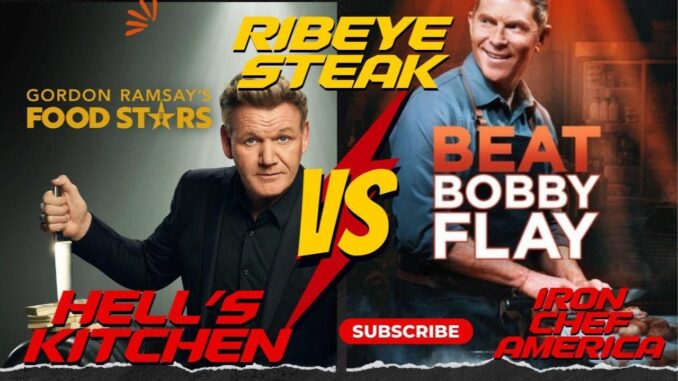
For decades, competitive cooking shows have dominated television, but few franchises have reached the cultural impact of Hell’s Kitchen and Iron Chef America. Both series celebrate culinary mastery and intense competition, yet the differences in tone, structure, and philosophy make them fascinating to compare. As television audiences rediscover classic cooking battles and anticipate fresh matchups in 2025, a renewed debate has emerged: which show truly defines competitive gastronomy?
Hell’s Kitchen, led by the fiery Gordon Ramsay, is built on pressure, discipline, and transformation. The format thrusts aspiring chefs into a high-stakes restaurant environment where they must cook, plate, communicate, and survive Ramsay’s uncompromising standards. The show’s narrative follows a clear arc: chaos meets mentorship, and only those who learn to work under extreme stress evolve into leaders capable of running Ramsay’s kitchen. It is, at its core, a boot camp for professional growth wrapped in the dynamics of reality TV drama.
By contrast, Iron Chef America centers on spectacle, technical skill, and culinary artistry. Hosted in the iconic Kitchen Stadium, the series pits elite chefs—many already acclaimed in their fields—against the legendary Iron Chefs. The battles unfold like sporting events, with time limits, secret ingredients, and fast-paced commentary giving viewers a front-row seat to culinary creativity. Unlike Hell’s Kitchen, which focuses heavily on character development and interpersonal tension, Iron Chef America shines a spotlight on the food itself. Every dish is a testament to innovation, technique, and strategy.
The hosts further define each show’s identity. Ramsay’s commanding presence shapes the emotional rhythm of Hell’s Kitchen, setting a tone that oscillates between explosive confrontation and moments of genuine mentorship. Meanwhile, the late-night energy of Iron Chef America, elevated by commentators like Alton Brown, brings a playful yet competitive spirit—almost like an edible sporting event.
Audience expectations differ as well. Hell’s Kitchen fans tune in for personal drama, leadership struggles, redemption arcs, and the thrill of watching whether a chef will sink or swim. Viewers of Iron Chef America seek culinary inspiration, creative plating, and the challenge of seeing master chefs push the limits of what ingredients can do. Both deliver intensity, but in completely distinct flavors.
Despite their differences, the two shows share one important element: they both elevate the culinary profession. They have introduced millions of viewers to the artistry behind cooking, the science behind flavor, and the discipline behind running a professional kitchen. In an era where food television expands across streaming platforms and social media, these two franchises remain foundational pillars.
As fans continue to dream about crossovers or hypothetical matchups between Ramsay and the Iron Chefs, one truth remains clear: Hell’s Kitchen and Iron Chef America each represent a different side of culinary excellence. One shapes chefs through adversity; the other celebrates mastery through competition. Together, they stand as two of the most influential cooking shows ever produced.
